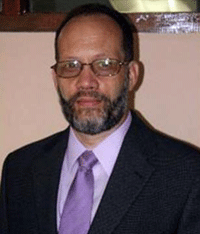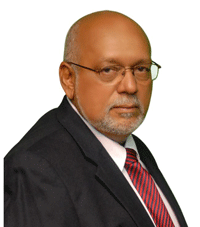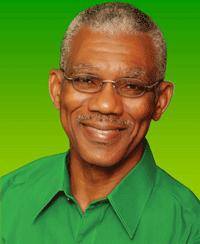THE GUYANA Government announced at the weekend that the members of the independent, high-level Commission of Inquiry into the killings of three people in Linden on July 18 are expected to be in Guyana to take the oath of office from President Donald Ramotar this Wednesday.
Both the Caribbean Community (CARICOM) and the Organisation of American States (OAS) have separately become involved, in assisting Guyanato deal with the
 |
 |
 |
 |
complexities of political and socio-economic problems in Linden after a month-long crisis involving violent protests, costly acts of arson and the killings of three protesters, reportedly by the police.
First, on August 20, the Georgetown-based CARICOM Secretariat disclosed in a statement released by Secretary-General Erwin LaRocque, that, at the request of the Guyana Government, it had “recommended three distinguished CARICOM nationals to serve on a Commission of Inquiry” which is expected to enquire into and report on “matters related to the events of July 18 in Linden…”
The Secretariat’s statement avoided alluding to any of “the matters related to the events of that day” (namely, July 18). However, the reality, as known to the people of Linden and Guyana as a whole, is that the particular focus of events on July 18 relates to the deaths from police gunfire during a clash with violent demonstrators, some of whom had earlier blockaded a bridge linking the Wismar community with Linden.
The three “distinguished” CARICOM nationals identified for the coming probe are: Jamaica’s former Chief Justice, Lensley Wolfe (currently chairman of the Public Service Commission of Jamaica); K.D Knight, a senior counsel and former Minister of National Security and Foreign Affairs of Jamaica; and Dana Seetahal, a senior counsel and former independent Senator of Trinidad and Tobago, and currently a columnist of the ‘Trinidad Express’.
Restricted probe
What has emerged as quite puzzling is that while the government of President Donald Ramotar and the combined parliamentary opposition—with a one-seat majority in the 65-memberNational Assembly—have welcomed the team of commissioners, as recommended by CARICOM, there was no consensus on the original terms of reference for the independent inquiry.
The opposition wanted the probe restricted to the deaths of three protesters by the police, while the government naturally felt that the circumstances of the killings of the trio should also form part of the inquiry—if not the subsequent extensive destruction by arson and general disruption of business and normal life after July 18.
Nevertheless, while the government and opposition were still focused on an evidently flawed terms of reference—with a text without context–as a consequence of political expediency or opportunism—the OAS was announcing its readiness to provide support for Guyana.
This “support”, as expressed in a statement, is to help in the government’s “requirements to maintain peace and security and strengthen human rights and democracy following the recent unrest in Linden…”
What Jamaicans, Trinidadians , Barbadians and other nationals of our 15-member Caribbean Community would naturally be interested in learning is how any team of “distinguished” commissioners, as those named, can appropriately carry out an inquiry into the disturbances, the human and other tragedies in Linden, without a meaningful inquiry into ALL related aspects of what combined to represent the “crisis” in that mining town in Region 10 of Guyana.
Relatedly, there remain questions about the modalities of operations by the OAS in fulfilling its own commitment to be of assistance to Guyana in the interest of ensuring “peace and security and the strengthening of human rights and democracy…”
The OAS Secretary-General would, of course, be aware that there is no political love between the parliamentary opposition and Guyana’s long-serving ambassador to the hemispheric body in Washington, Bayney Karran, a lawyer by profession, who had provided a brief with the guidance of the Ministry of Foreign Affairs.
Insulza’s caution
The opposition would be aware that Secretary-General Insulza’s statement of pledged “support” had followed an earlier reaction from the Inter-American Convention on Human Rights (IACHR) on the deaths of the three protestors with a reminder that force by the police should be in strict conformity with established international obligations.
For his part, Insulza thought it necessary to observe in his statement — without a specific mentioning of the IACHR — that there should be “no rush to judgment” on this particular issue involving the security forces.
Incidentally, both the parliamentary opposition leader, David Granger, and the Minister of Home Affairs, Clement Rohee, had openly called for the immediate transfer from his command post in Linden, the police officer in charge on the day of the shooting deaths of three protestors.
Amusingly, however, Granger was to subsequently secure rushed permission by the Speaker of Parliament, then former leader of the minority Alliance For Change (Raphael Trotman) to successfully move a “no confidence” motion against the Home Affairs Minister for claimed involvement in the police clashes with Linden protesters. Assured of its one-seat majority, Granger’s motion was approved, even as some well known opposition activists kept stirring the pot of discontent and disorder in Linden.
Now we await the coming work programmes in Guyana by the three-member Commission of Inquiry with a very restricted mandate and that of a wider nature by the OAS.



.jpg)








